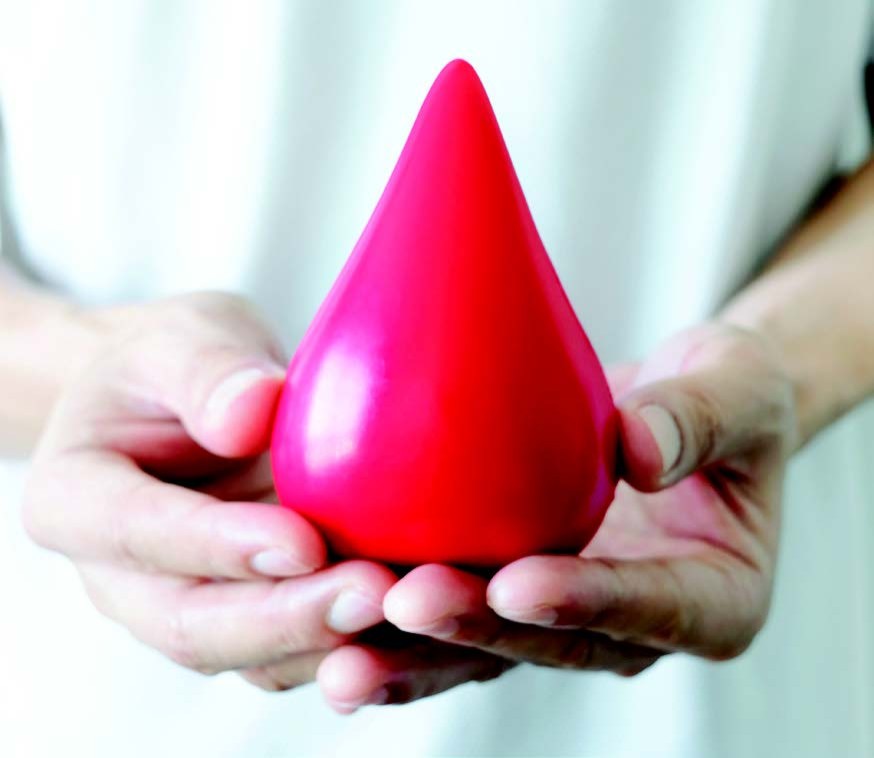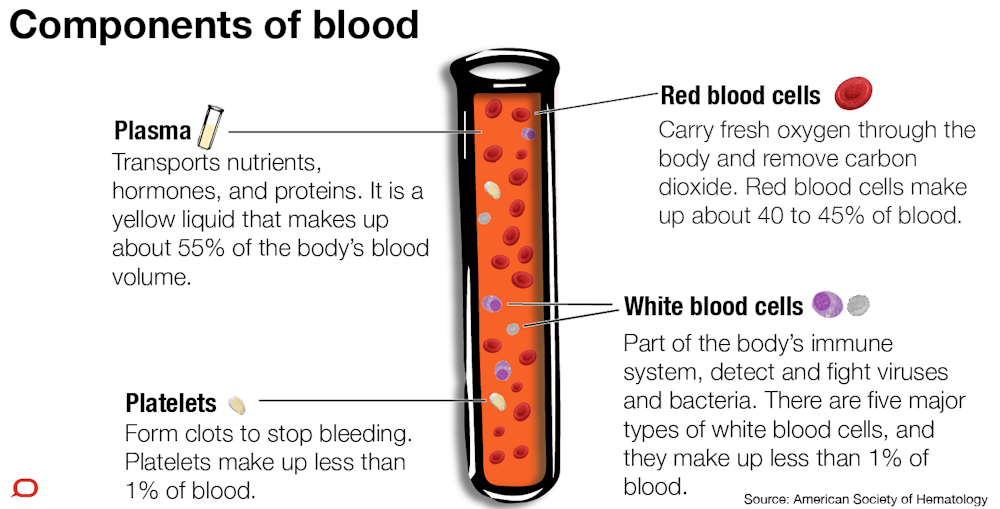What is Blood?
Blood is a body fluid in humans and other animals that delivers necessary substances such as nutrients and oxygen to the cells and transports metabolic waste products away from those same cells.
Functions of Blood:
- Supply of oxygen to tissues (bound to hemoglobin, which is carried in red cells)
- Supply of nutrients such as glucose, amino acids, and fatty acids (dissolved in the blood or bound to plasma proteins (e.g., blood lipids))
- Removal of waste such as carbon dioxide, urea, and lactic acid
- Immunological functions, including circulation of white blood cells, and detection of foreign material by antibodies
- Coagulation, the response to a broken blood vessel, the conversion of blood from a liquid to a semisolid gel to stop bleeding
- Messenger functions, including the transport of hormones and the signaling of tissue damage
- Regulation of core body temperature
- Hydraulic functions.
Blood Components:
There are four basic components that comprise human blood: plasma, red blood cells, white blood cells and platelets.




No comments:
Post a Comment